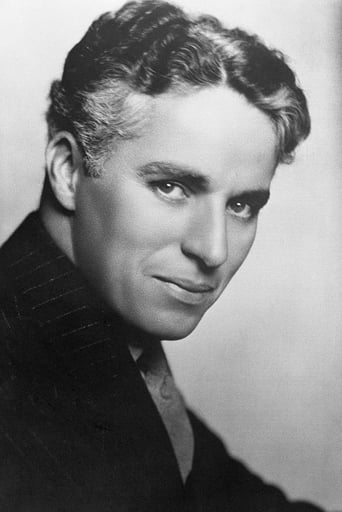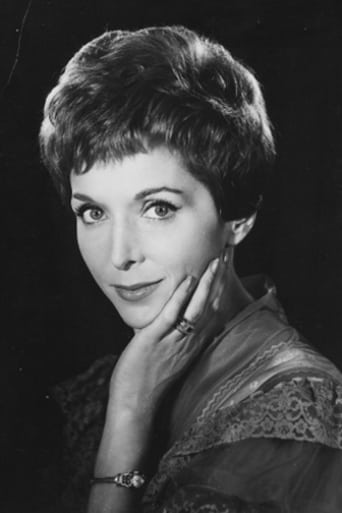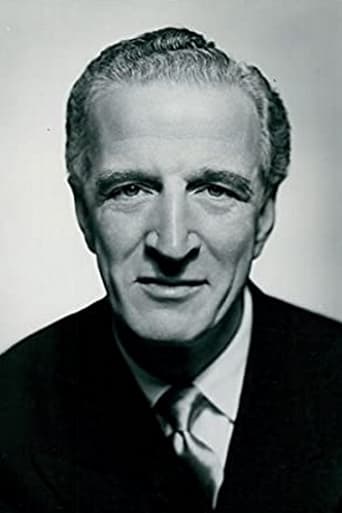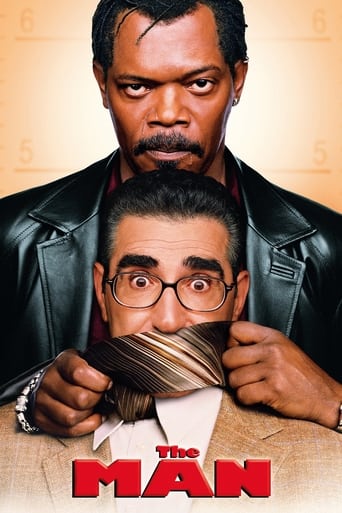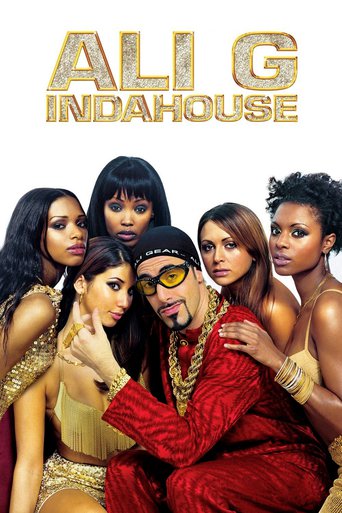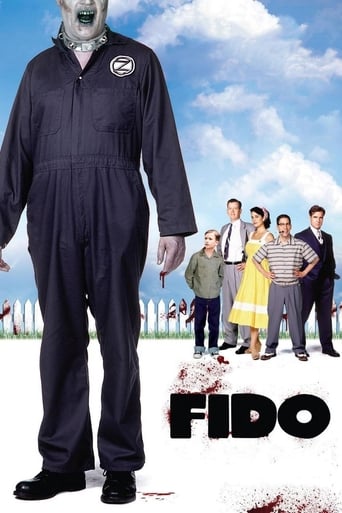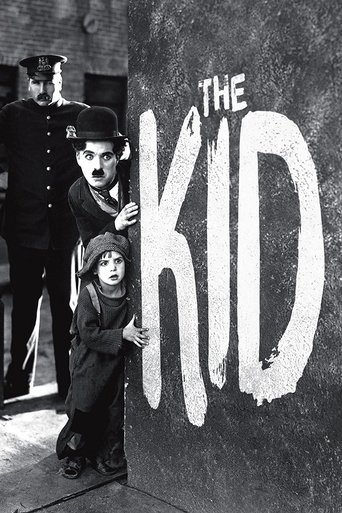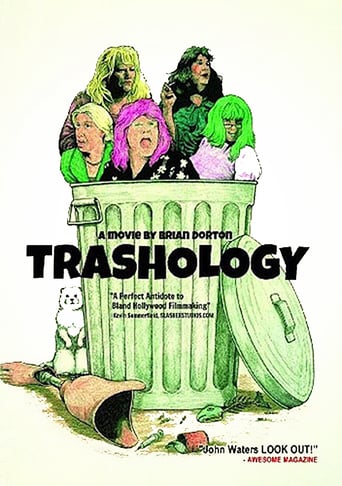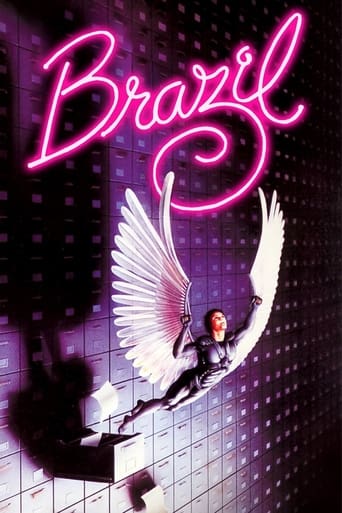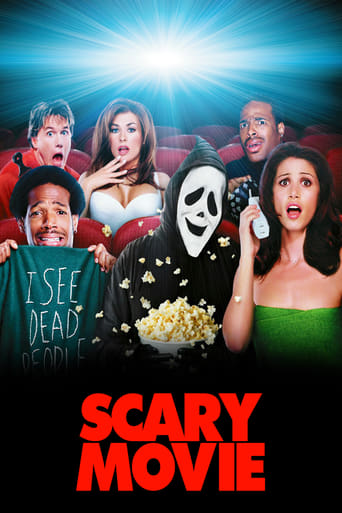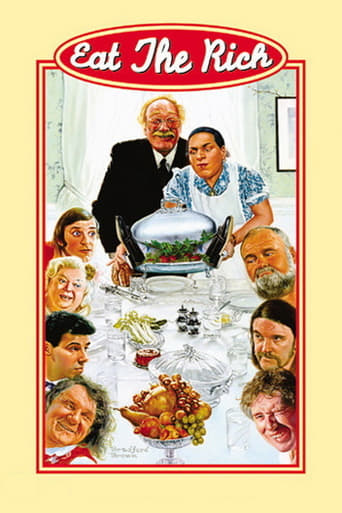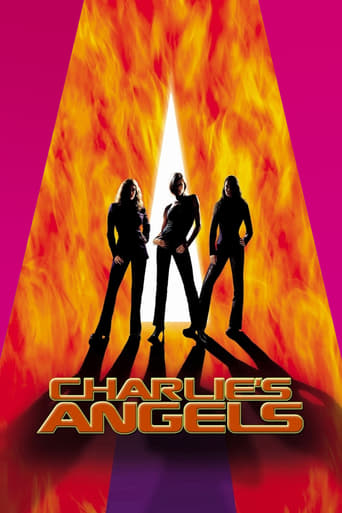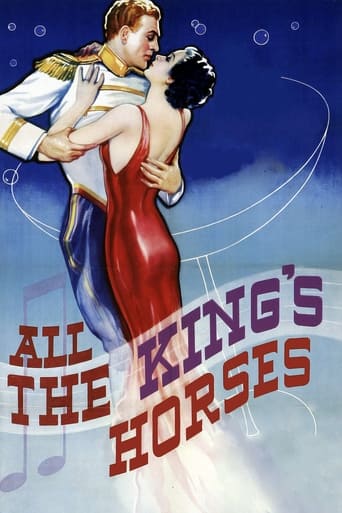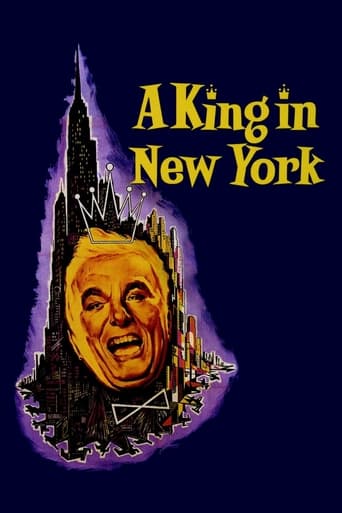
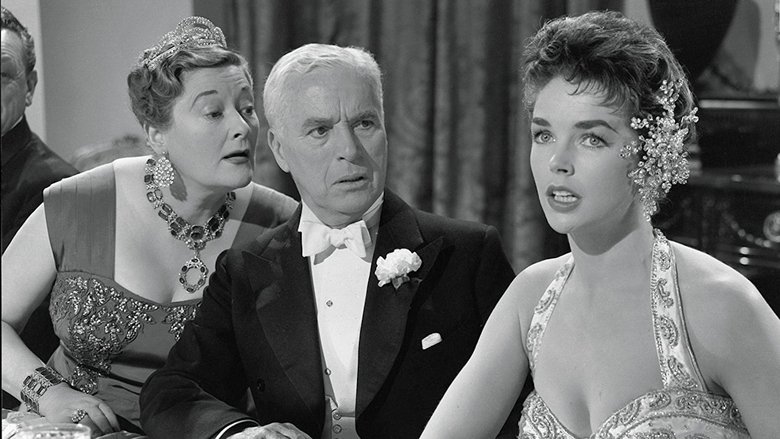
A King in New York (1957)
A recently-deposed "Estrovian" monarch seeks shelter in New York City, where he becomes an accidental television celebrity. Later, he's wrongly accused of being a Communist and gets caught up in subsequent HUAC hearings.
Watch Trailer
Cast


Similar titles
Reviews
Am a big fan of Charlie Chaplin, have been for over a decade now. Many films and shorts of his are very good to masterpiece, and like many others consider him a comedy genius and one of film's most important and influential directors. It is hard to not expect a lot with all his feature films between 'The Kid' and 'Limelight' being very good to masterpieces. On that front Chaplin's penultimate film 'A King in New York' disappoints a little. As far as his feature films go it is one of his weaker ones, being nowhere near the standard of 'The Gold Rush', 'The Kid', 'Modern Times', 'The Great Dictator' and especially 'City Lights'. As far as his overall career goes it is nowhere near among his worst, including his early career short films it is much better than the worst of his Keystone period and even his much improved Essanay period had a couple of lacklustre ones. He also did a couple of historical curios and patchworks that this is also superior to. 'A King in New York' has its problems. It is one of his least visually refined feature films. Some of the camera work and editing are rough and the evoking of New York is not very convincing at all, it was made in England rather than being authentic and it is very obvious it was not shot in New York. Chaplin also lays it on far too thick with the political elements which, while admirably cutting and personal, felt very heavy-handed and not always needed. Especially what is said from the young boy. Chaplin is no stranger to including politics in his films and short films and they are not subtle, but it comes over as very bitter and aggressive here in a way that wasn't there previously. A few parts go on too long too and could have been trimmedHowever, the music is good, neither intrusive or out of place. Chaplin does give a typically great performance and the supporting cast acquit themselves well too. Chaplin is not at his most inspired in the directing but the expertise is still there and handled well.The film is never dull either, while the satirical element is sharp, the comedy is genuinely funny, there is some very thought-provoking insight and there is some sentiment/pathos that is very touching while not being over-the-top or overused.Summing up, good but didn't blow me away. 7/10 Bethany Cox
It had been over 20 years since Charlie Chaplin last adorned his beloved character 'The Tramp.' Although in his later performances, the aspects of the icon are inescapable, A King In New York deliberately brings the slapstick back into an interesting context. He is not a tramp, nor a barber, but a king. A king whose unfortunate attempts at sophistication end up humiliating. It's a clear critique on the buffoonery of authority figures as he obliviously goes out for entertainment in New York while his home country is rioting against him. The lure of celebrity is a temptation to all and Chaplin protests that it's irresponsible for these types of powerful figures to be drawn to it. His last two films, The Great Dictator and Limelight, were two of his best films that were seamlessly able to blend comedy with a message and emotion.Unfortunately, A King In New York doesn't have the same weight to it emotionally and leads it inevitably into being lesser Chaplin. That said, it's still hilarious, with great satire and slapstick, a highlight being where the king's curiosity gets the better of him and he puts his finger in a fire hose and drags it through the following scenes. Chaplin has always had a talent for getting the best out of a simple joke. It's a shame that he felt the need to have his political point on a soapbox in the form of a young child. It's distracting and feels unnecessary. The film's effect would've been far greater without it being spoken as Chaplin's king was enough to get the message. Although, in finally watching his unpopular films, they have made me realise how he has an unconditional place in my heart as all director, writer and performer.7/10
As probably one of Chaplin's lesser efforts, this falls short of the level of sheer genius to the level of mere mortal excellence.As proof of Americans' depressing ability to laugh at any ethnic group or nationality except for themselves, at the time, this movie got many Americans' hackles up, and by the looks of the comments here, still does for some people. However, Chaplin's tone in this film, described by some as bitterness, I would more accurately call incisiveness.Of course this movie had to be made in Britain, and wasn't shown in the USA for about 20 years, until after the youthquake of the late 1960's and the changing of the generational guard, proving Americans are not fond of having their foibles and hypocrisies pointed out to them in a rather obvious manner.Some of the more satirical aspects of the film, including the film trailers, TV advertising, the reality television show (Chaplin about 40 years ahead of the curve on that one) and the whirlwind feel of New York City, represent rather gentle pokes at a society in which, to remind everyone, Chaplin had worked in and made his fame and fortune in for over 40 years.It's only when the Senator McCarthy inspired storyline takes hold, around halfway through the film, that the story turns markedly more serious. Chaplin sprinkles the film throughout with references to the US Constitution, and freedom of speech, and "American blood boiling." Clearly he is on the side of freedom versus totalitarianism, and against the witch hunt like tactics of HUAC that destroyed American careers, drove people into poverty or exile, and provably never found one person that was a real, imminent danger to American society. Looking back from this point, almost everyone agrees that HUAC and its blowback were a blot on the history of the United States and its aspirations of freedom, and rightfully so.Although this aspect of the film is a bit heavy-handed, and the rather sad ending is somewhat disappointing but rather realistic within the context of the times, I feel that this only detracts mildly from the comedy on offer, Chaplin's amazing screen presence, and artistry as a writer, actor and director. It is enough to make me wish he had done more than three talking films in his career. Yes, that guy in his 60's up there on the screen with the gray hair certainly isn't the little tramp of 1920, but he is a character almost equally as compelling, and much more formidable.Not mentioned by many is the fact that Chaplin even composed the score for this film, which is in itself worthy of praise. Chaplin probably could have carved out a career as a successful film composer, over and above his other gargantuan talents.See it if you can. A King in New York is a treasure.
A KING IN NEW YORK is a curious film in the Chaplin-canon. It was his first film to be produced outside of Hollywood. It was the last film in which he had a starring role. It was his second to last completed film altogether. It is also by many regarded as his worst film, but while it is hard not to recognize that KING is uneven in places, I find it equally hard not to recognize its better qualities.By the time he embarked upon the screen-play, Chaplin had been seeking for a story for his next film since his exile out of the United States in 1952. For a while he considered getting his beloved Tramp character back in the limelight, but abandoned this idea as he was getting too old for doing the sort of physical playfulness that was required from the character. He finally landed on the story of King Shadhov, who has eloped to New York as a revolution has taken place in his country. Nearly broke, the king is forced into making money in ways which might disturb his royal image. He acquaints a super-intelligent, albeit precocious kid named Rupert (Michael Chaplin), whose parents are suspected of being communist sympathizers during the prime of the McCarthy-era. Chaplin ridicules several aspects of contemporary American culture, including predictable movies, commercials, rock'n'roll, how plastic surgery is increasingly being used out of a obsessive desire to prevent age to be recognized, and Television; one sequence probably stands even more relevant today, when King Shadhov is invited to a gathering in which he, unbeknownst to him, is being filmed through hidden cameras and shown directly on TV this was ages before reality-TV, folks.What is usually criticized about the film is how Chaplin's personal bitterness over his exile is made too evident, and that he seems to be dealing with more problems than he can chew. In my eyes, these are not big problems; the satire may rarely be subtle, and it is obvious that the film is based on personal opinions of the creator, but such it had always been with Chaplin. Ever since the first films he made in which a conscious move to leave comment on the society can be traced, Chaplin's motive had not been as much to put the society to question as to let the society be the target of his comedy simply because he found lots of comic potential in it. I don't believe Chaplin would have made MODERN TIMES had he not seen the possibilities of making comedy out of the serious theme it covers. In the same way, he hardly made KING in a desire to let out his opinions, at least not solely so; rather, I believe that in search of new comedy material, he decided to use themes which had obsessed him much in the last few years, making the McCarthy-era and American culture obvious choices.Chaplin tries to chew a lot, but I think he succeeds most of the time, as his covering of nearly every theme in the film somehow relate to one another. More importantly, I think much of the comedy is breathtakingly funny; when King Shadhov arrives at the airport, exclaiming to his ambassador that "We fooled them!", not realizing that a reporter has placed a microphone beneath his mouth, I laughed out loud, and it went louder pretty much throughout. One part which always makes me nearly roll on the floor in laughter is when Shadhov and his ambassador are having lunch right after Rupert has admitted to them that his parents have been members of the Communist party, making the two men so nervous they can't drink their coffee. It then knocks on the door, resulting in the ambassador getting his tongue paralyzed and being only able to shiver a series of "C-c-c-c-c-c-c 's" until the person who knocked, a room service man, has left, whereupon the ambassador THEN exclaims totally exhausted, " Come in!" The timing is perfect from both Chaplin and Oliver Johnston, who in fact overshadows Chaplin's performance a few times in the film.Yet, despite my conviction that A KING IN NEW YORK is a far cry better than its reputation claims, it suffers from inevitable short-comings. Some of the parts in which the comedy is not present are rather dull. I don't get what purpose the queen in the film fulfills, other than making way for an obvious conclusion to the story; the king and the queen has decided to divorce on the king's insistence, but they part on friendly terms. A scene follows in which the two of them chat about how the king once thought the queen was too young to know her best, but it turned out that she weren't, and so on, and the queen is then not granted a mention again until the very end, when it turns out she won't get a divorce after all; it's remarkable how these news fail to affect me each time I view the film. Also, here and there the dialogue feels rather superfluous. It has been pointed out that Chaplin here was working without his own studio and employees, for the first time in forty years, which possibly made him less open for criticism from others while making the film, or he may not even have been offered it. One should also note that Chaplin didn't remain blind to KING's lesser qualities; several years later, he wrote that he felt "rather uneasy about the whole film." Chaplin went too far. A KING IN NEW YORK is by no means his best film, but it must rank among his funniest, and is quite thought-provoking every once in a while.


